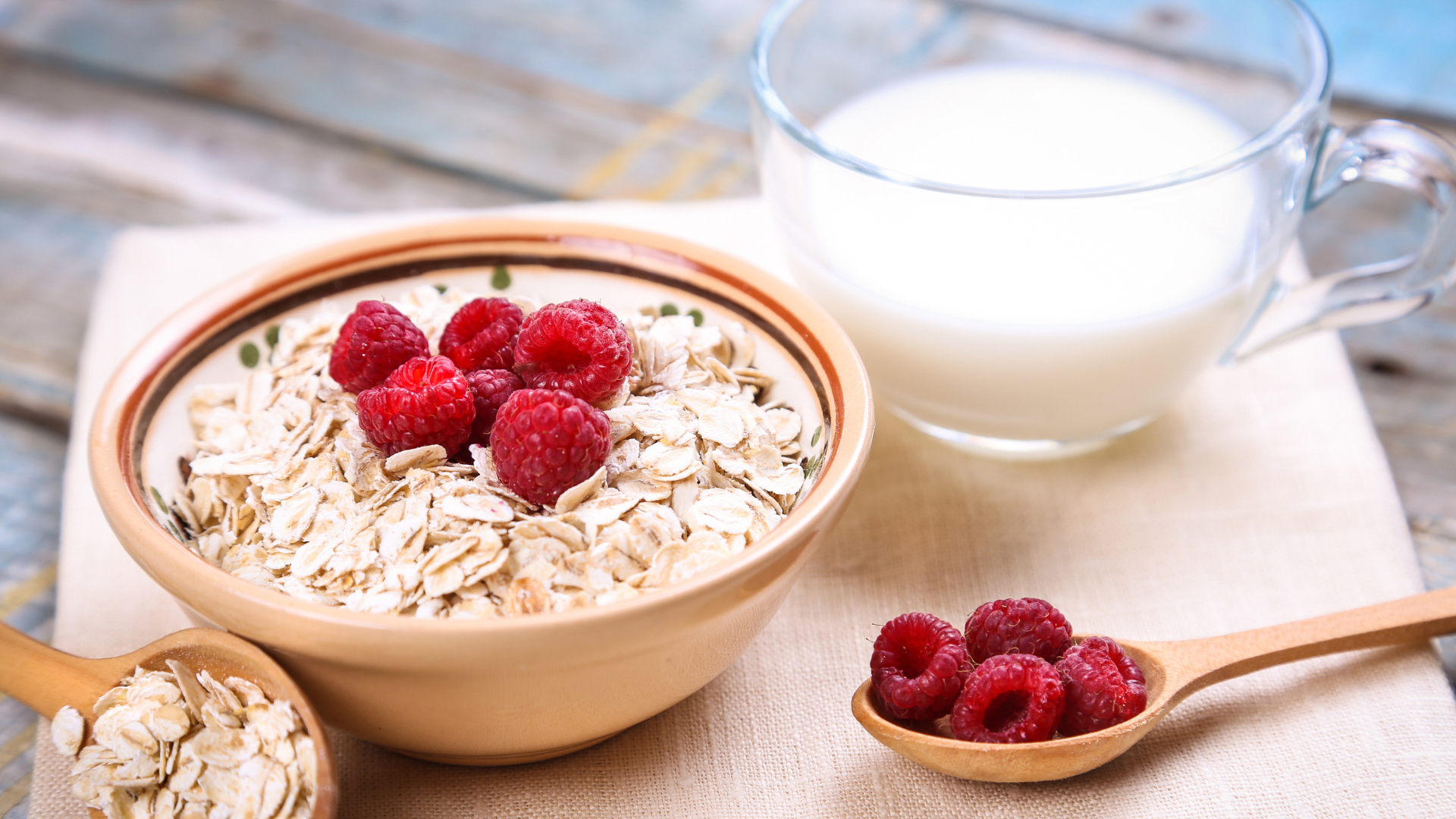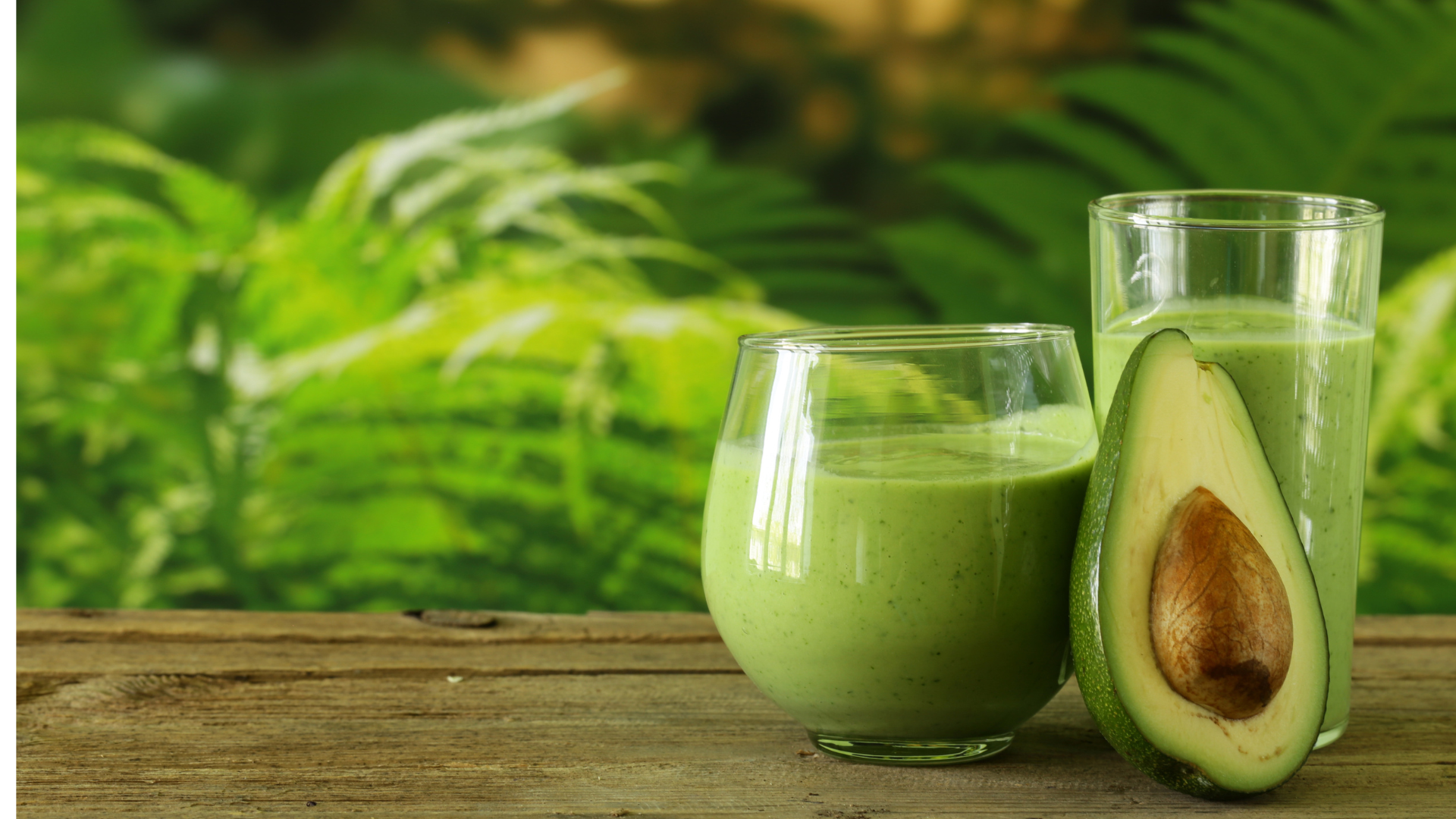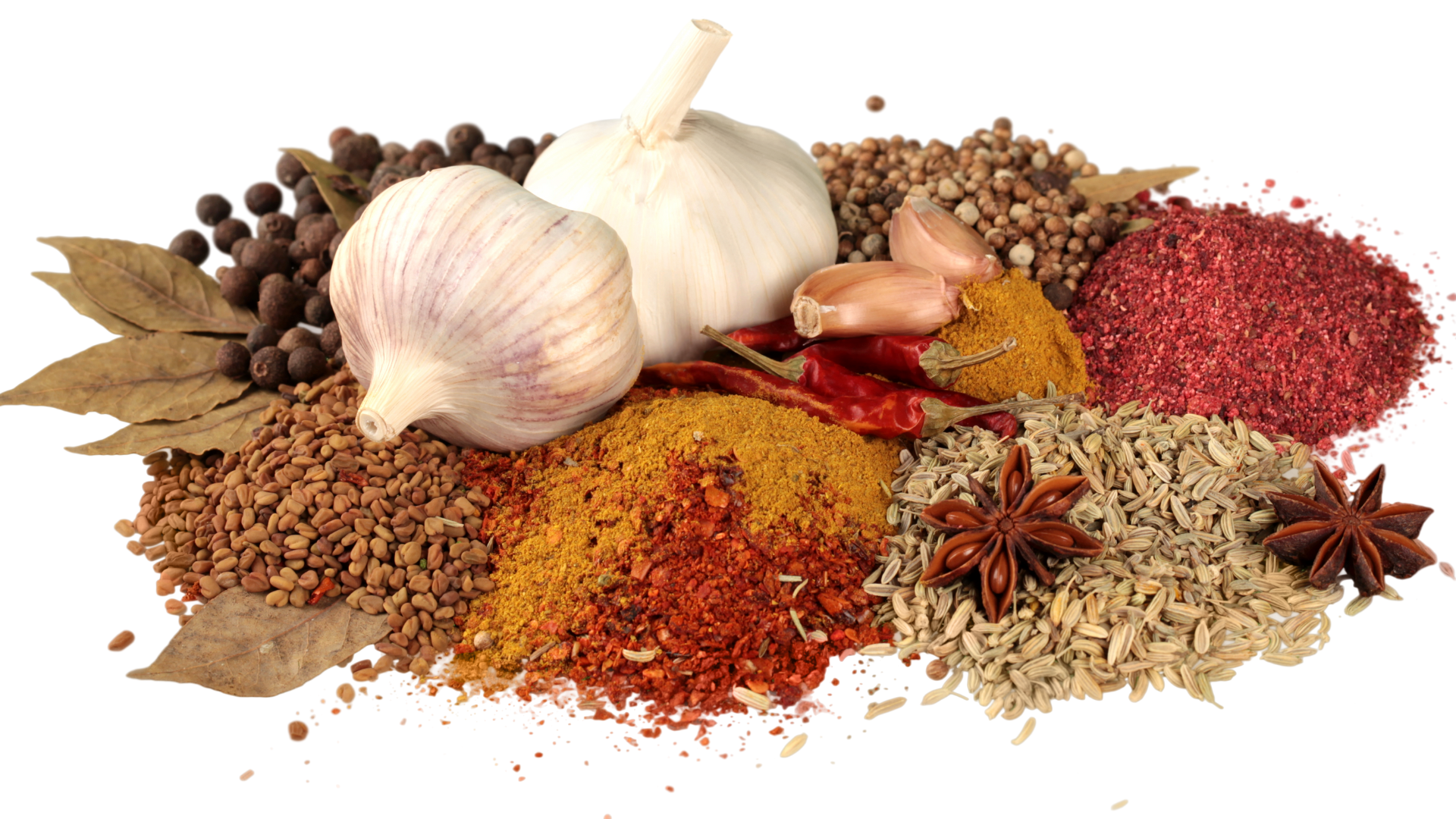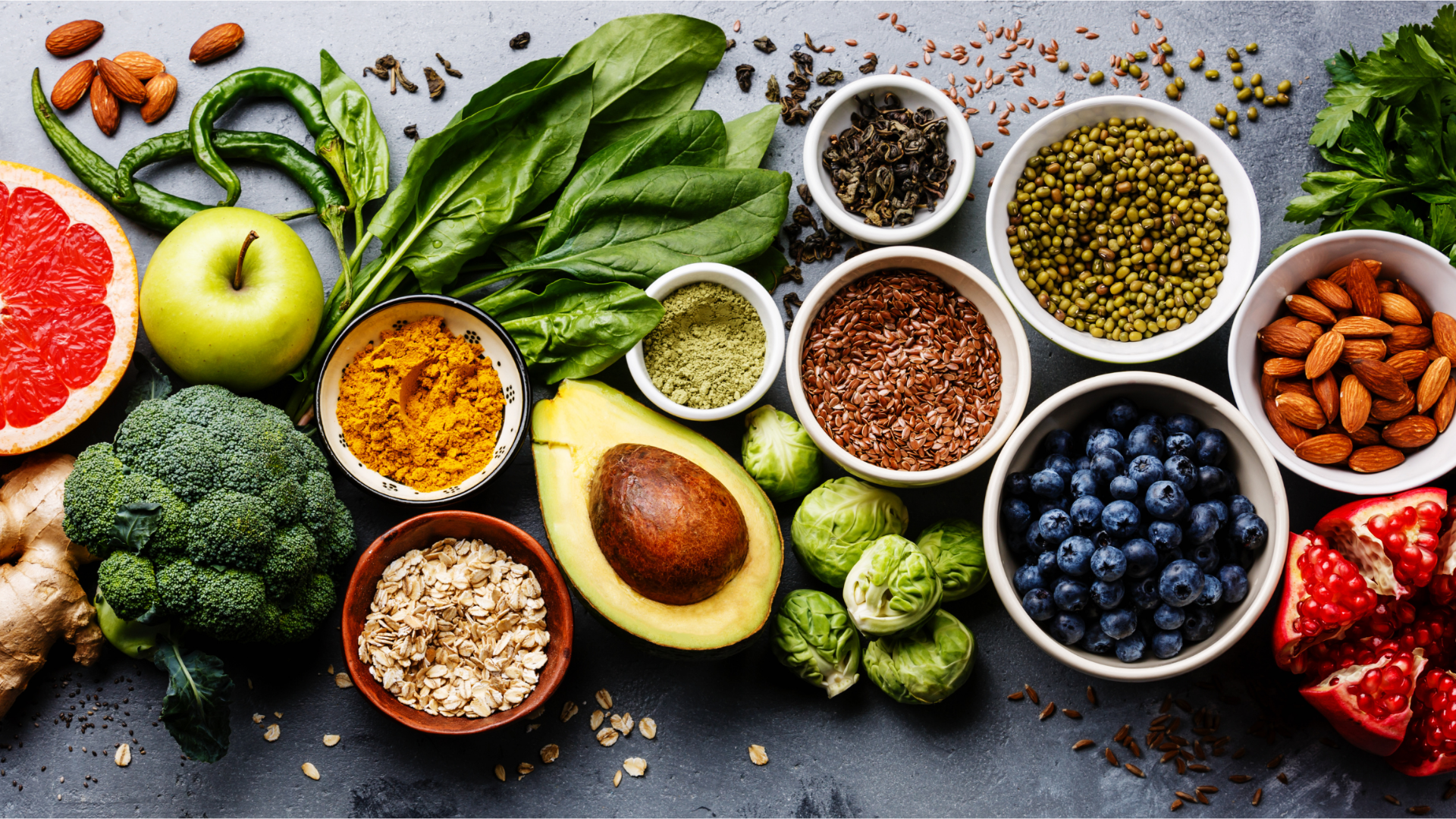Why do some sportsmen and women set soaring times... while others stagnate despite the same training? The answer lies (partly) in what you eat.
What we eat directly influences our performance and recovery. Sportsmen and women therefore have different nutritional requirements to the general public. They need more calories to maximize performance and greater quantities of macronutrients to maintain strength, endurance and recovery.
There's no such thing as the ideal food: a good diet needs to be varied and balanced above all. But there are some particularly interesting foods that enable athletes to effectively meet their macronutrient needs (carbohydrates, proteins, lipids) while providing essential micronutrients, vitamins and minerals.
Food examples
Monounsaturated fats
To understand which foods to choose, you first need to understand a few basic principles of nutrition. Let's take a closer look at how our bodies work so we can adapt our diet accordingly.
Good sports nutrition helps athletes improve their performance while preserving their long-term health.
The first objective is to ensure sufficient energy intake to support the training load. A top-level athlete can expend two to three times more energy than a sedentary person.
Energy balance is the difference between calories consumed and calories expended. It must be tailored to each athlete's profile. Women, for example, generally have lower energy requirements due to less muscle mass and a lower basal metabolic rate.
An excessive or prolonged caloric deficit can lead to persistent fatigue, reduced performance and an increased risk of injury.
On the other hand, a systematic caloric excess will lead to weight gain, which can be detrimental to sporting performance.
But good nutrition isn' t just about calories. By playing with the ratio of macronutrients, an optimized diet can help athletes not only improve endurance, power, concentration and recovery, but also adjust their body composition. Depending on the sport practised, the ideal ratio between lean body mass and fat mass can vary: a sprinter, for example, will seek a lower percentage of body fat than a rugby player or shot-putter.
Finally, it's important to remember that sports nutrition is first and foremost about ensuring good overall health. A balanced, varied diet provides all the nutrients the body needs to function properly.
Unlike temporary restrictive diets, a sportsman's diet is a lifestyle in its own right, evolving with his profile, training phases and competitions.
What's the best macronutrient breakdown for athletes?
Macronutrients are involved in energy production, and are essential for growth, development and function.
Recommended ratios vary according to the athlete's profile and objectives. They should be adapted according to the athlete's mass gain or muscle lean objectives:
- 45-65% carbohydrates
- 20-35% protein
- 20-35% fat
Please note that when we talk about %, we're talking about % of total calorie intake. Let's look below at more concrete requirements, in g/kg/d.

How many carbohydrates per day (4 kcal/g)
For top-level athletes, sufficient carbohydrate intake before exercise can make all the difference to their performance. The quantity of carbohydrates to be consumed varies according to the sport practiced and the intensity of the effort. In her book on individualized nutrition, Laurie Anne Marquet recommends adapting your carbohydrate intake to your training program1:
- Dominantly aerobic sports (competition days or long, hard training sessions): 8-12 g/kg/day
- Intermittent sports (competition days or long, hard training sessions): 6-8 g/kg/day
- Single training day: 4- 6g/kg/day
- Non-training day: 2-3 g/kg/day
If required, you can estimate your optimal carbohydrate intake using our calculator.
Carbohydrates are stored in the body in the form of glycogen, mainly in the muscles and liver. These reserves are limited, and depending on the type of exercise performed (intensity and duration), they will not be depleted at the same rate.
For example, after 2 hours at 75% VO2max , muscle glycogen reserves will be depleted, or after 4 hours at 50% VO2max 2. A depletion of energy reserves leads to muscle fatigue and an inability to sustain exercise intensity.
Dried fruits such as dates are rich in fast carbohydrates and minerals, and are a natural alternative to energy gels for prolonged efforts.
When to eat carbohydrates?
Every athlete needs to ensure carbohydrate intake before, during and after training and competition. Before exercise, carbohydrates supplement glycogen reserves to provide the energy needed for the effort ahead.
During exercise, they help maintain blood sugar levels and preserve glycogen reserves. After exercise, they promote recovery and replenishment, while preventing muscle catabolism.
Complex carbohydrates, such as those found in oat flakes, rice, pasta and potatoes, are particularly beneficial, as they release energy gradually. They help maintain stable energy levels throughout the day.
| Feed | Carbohydrate type | Specific advantages |
|---|---|---|
| Wholegrain pasta | Complexes | Slow release of energy, rich in fibre |
| Brown rice | Complexes | Good digestibility, rich in B vitamins |
| Wholemeal bread | Complexes | Rich in fibre, satiating |
| Sweet potatoes | Complexes | Rich in vitamins A and C, antioxidants |
| Potatoes | Complexes | Good source of potassium |
| Oats | Complexes | Rich in soluble fibre, stabilizes blood sugar levels |
| Fresh fruit | Simple and complex | Vitamins, minerals and antioxidants |
| Honey | Simple | Fast energy, antibacterial properties |
| Raisin | Simple | Concentrated energy, easy to transport |
Beware of the simple sugars found in energy drinks and commercial energy bars. While they can be useful during exercise or competition for a quick energy boost, excessive consumption outside these times can lead to unwanted blood sugar spikes.
How much protein per day (4 kcal/g)
Proteins are essential for muscle growth and tissue repair. Protein requirements vary according to intensity and type of sporting activity:
- Sedentary: 0.83 g/kg/day
- Endurance sports/light training: 1.2-1.6 g/kg/day
- Power sports/intense training: 1.6-2 g/kg/day
It is advisable to consume protein in the hours following training to promote muscle repair, but also at every meal, as a snack and just before bedtime. In fact, protein intake spread throughout the day is more effective than a single intake.3
| Feed | Protein content (g/100g) | Specific advantages |
|---|---|---|
| Chicken breast | 23-24 | Low fat, easy to digest |
| Fish | 20-25 | Rich in omega-3, complete proteins |
| Eggs | 13 | Complete protein, high biological value |
| Lean meat | 20-22 | Rich in iron and zinc |
| Pulses | 8-10 | Rich in fiber and vegetable protein |
| Dairy products | 3-10 | Calcium and fast proteins (whey) |
| Tofu | 8-12 | Complete plant-based alternative |
| Whey protein Protéalpes | 62 | Complete amino acid profile |
Pulses such as lentils, chickpeas and dried beans are excellent sources of vegetable protein, fiber and complex carbohydrates. Combined with a cereal, they provide the body with all the amino acids it needs to rebuild its proteins.

How much fat per day (9 kcal/g)
Lipids play a very important role in maintaining performance and overall health. They are an important source of energy, particularly for long-duration, moderate-intensity efforts, and support the hormonal system, among other things.
It's important to distinguish between the different fatty acids. Saturated fatty acids, found mainly in fats that are solid at room temperature, such as animal fat, butter and palm oil, should be consumed in moderation, as they increase cardiovascular risk. Conversely, unsaturated fatty acids, notably omega-3 and omega-6, are essential for the body's proper functioning.
For top-level athletes, the recommended lipid intake is generally between 1 and 1.5g per kg of body weight per day, or around 20-35% of total calorie intake. This amount supports hormonal and immune functions, while providing an alternative energy source to carbohydrates.
| Feed | Lipid type | Specific advantages |
|---|---|---|
| Olive oil | Monounsaturated | Anti-inflammatory, antioxidant |
| Lawyer | Monounsaturated | Rich in potassium and fibre |
| Oily fish | Omega-3 | Anti-inflammatory, cardioprotective |
| Walnuts | Polyunsaturated | Omega-3, protein, fibre |
| Chia seeds | Omega-3 | Fiber, protein, antioxidants |
| Flax seeds | Omega-3 | Lignans, soluble fibers |
| Peanut butter | Various | Protein, concentrated energy |
| Rapeseed oil | Balanced | Good omega-3/omega-6 ratio |
The caloric density of lipids (9 kcal/g compared to 4 kcal/g for proteins and carbohydrates) makes them valuable allies for athletes with high energy needs or those who struggle to maintain their weight (ectomorphs, for example). A tablespoon of olive oil in a salad or a serving of avocado is an easy way to increase calorie intake without increasing food volume.
Beware of processed fats in industrial foods. Trans fatty acids, produced during the hydrogenation of vegetable oils, have harmful effects on cardiovascular health and can impair long-term athletic performance.
How many liters of water per day?
Even mild dehydration can significantly reduce physical and cognitive performance. During intense exercise, the body can lose up to 2-3 liters of water per hour through perspiration, particularly in hot conditions.
This loss of water is accompanied by a loss of essential electrolytes such as sodium, potassium and magnesium. Water intake should be adjusted according to ambient temperature, intensity of effort and individual perspiration rate.
Weighing before and after training is a simple and effective method of assessing water loss. In its nutrition sheets, INSEP recommends drinking at least 500 ml of water per hour and compensating abundantly for losses after exercise.4
Foods rich in essential micronutrients
Micronutrients, although required in smaller quantities, help athletes to stay healthy and fit for training.
Vitamins and minerals are involved in all the metabolic processes essential to intense physical activity. They are involved in energy production, protein synthesis, immune function and protection against the oxidative stress generated by physical exercise.
High-level athletes generally have higher micronutrient requirements due to their higher metabolism and losses through perspiration. A diet rich and varied in fresh fruit and vegetables forms the basis for optimal intake of these essential nutrients.
| Micronutrient | Physiological role | Best food sources |
|---|---|---|
| Vitamin D | Bone health, muscle and immune function | Oily fish, eggs, fortified dairy products, sun exposure |
| Iron | Oxygen transport, energy production | Red meat, legumes, whole grains, dark green vegetables |
| Calcium | Muscle contraction, bone health | Dairy products, green vegetables, tofu, almonds |
| Magnesium | Muscular function, energy production | Nuts, seeds, green vegetables, wholegrain cereals |
| Zinc | Protein synthesis, immune function | Meat, seafood, legumes, seeds |
| B vitamins | Energy metabolism | Meat, eggs, dairy products, whole grains, green vegetables |
| Vitamin C | Immune function, collagen synthesis | Citrus fruits, kiwi, peppers, tomatoes, berries |
| Potassium | Water balance, muscle function | Bananas, potatoes, legumes, green vegetables |
Green leafy vegetables like spinach and kale are particularly good for athletes, as they're packed with vitamins, minerals and antioxidants.
Seasonal fruit makes an excellent pre- or post-workout snack. Not only do they provide quickly digested carbohydrates, they also provide a host of vitamins and antioxidants that promote recovery and reduce the risk of injury.
And the seeds?
Seeds are very rich in nutrition and help maintain a healthy and varied diet. Here are a few examples:
| Seeds | Main nutrients | Benefits for athletes |
|---|---|---|
| Chia | Protein, omega-3, fiber, magnesium, calcium, phosphorus | Aids digestion, reduces inflammation, provides long-lasting energy |
| Sunflower | Vitamins E and B1, magnesium, unsaturated fats | Excellent source of vegetable protein, rich in essential vitamins |
| Linen | Omega-3 (ALA), fiber, vitamin E | Support heart health, may reduce inflammation |
| Sesame | Calcium, iron, magnesium, B vitamins | Helps prevent fatigue, supports bone health |
| Hemp | Complete proteins (all amino acids), omega-3s and omega-6s | Promote muscle recovery, support cardiovascular health |
What are protective foods?
In the INSEP nutrition sheets, "protective foods" are recommended for athletes as they actively contribute to cellular protection, inflammation regulation, acid-base balance and digestive system health.
These foods are particularly important in the context of intense physical activity, where the body is subjected to increased oxidative stress and repeated microtrauma. Here are a few examples of protective foods4:
Antioxidants
- Function: protects cells against free radicals (oxidative stress), reducing the risk of chronic diseases.
- Examples: red fruits (raspberries, strawberries), green vegetables (spinach), nuts (almonds), seeds (chia seeds), and vegetable oils (olive oil).

Anti-inflammatories
- Function: Helps reduce chronic inflammation, often associated with health problems.
- Examples: oily fish (salmon), fish oil, turmeric, ginger and certain spices.
What is Oxidative Stress?
Oxidative stress is an imbalance between the production of free radicals (reactive oxygen species) and the body's ability to neutralize these reactive molecules with antioxidants. Free radicals are unstable molecules that can damage cells by reacting with lipids, proteins and DNA.
During intense exercise, the body increases its oxygen consumption, which can lead to a high production of free radicals, particularly in the mitochondria, where oxygen is used to produce energy. Free radicals can also be generated by muscular inflammation or tissue degradation during exercise.
Oxidative stress can have negative effects on the body, including:
- Muscle fatigue: free radicals can damage muscle fibers, contributing to fatigue and muscle soreness after exercise.
- Chronic inflammation: prolonged oxidative stress can promote chronic inflammation, which is associated with various diseases.
- Cellular damage: free radicals can damage DNA, proteins and cellular lipids, which can accelerate cellular aging.5
Alkalis
- Function: helps maintain a healthy acid-base balance in the body.
- Examples: green vegetables (spinach, broccoli), fruits such as lemons and oranges, and certain seeds.
Beneficial for intestinal flora
- Function: support the health of the intestinal microbiome, essential for digestion and the immune system.
- Examples: fermented products (yoghurt, kefir, kimchi), soluble fibers (oats, fruit), and prebiotics (asparagus, onions).
Foods to avoid before exercise
Foods that are difficult to digest, for example those rich in fiber or fat, should be avoided before exercise. Depending on the profile, these foods include dairy products, beans and cruciferous vegetables (broccoli, cabbage).
These foods stay in the stomach longer, diverting oxygen-rich blood from the muscles to the stomach to aid digestion, often resulting in a feeling of fatigue. Other foods to avoid are "empty calories" that have no nutritional value, such as soft drinks, alcohol and candy.6
What about dietary supplements?
Top-level athletes have high nutritional requirements that even an optimized diet can sometimes struggle to meet. In their 2018 consensus statement on dietary supplements for athletes, the International Olympic Committee stresses the importance of optimized nutrition and training before resorting to dietary supplements.
According to them, "Supplements that are supposed to directly or indirectly improve performance represent the majority of products offered to athletes, but only a few (including caffeine, creatine, specific buffering substances and nitrate) have proven benefits. However, responses are influenced by the modalities and context of use, and can vary considerably from one individual to another due to factors such as genetics, microbiome and dietary habits. "7
The committee urges athletes to be particularly vigilant about the composition and traceability of products before consuming them: "The unintentional ingestion of substances prohibited under the anti-doping codes governing top-level sport is a known risk of taking supplements".
Energy drinks, often consumed for their caffeine content, can contain large quantities of added sugars and additives. Regular consumption is not recommended.
Whey and creatine are among the most widely used and well-documented dietary supplements in the world of sports. Whey, a protein extracted from whey, is distinguished by its biological origin and natural richness in essential amino acids, particularly leucine, which directly stimulates muscle protein synthesis. Rapidly absorbed, it promotes optimal recovery after exercise and effectively supports muscle growth when combined with appropriate training.
Creatine, for its part, increases muscle phosphocreatine reserves, enabling faster ATP regeneration during explosive efforts. Numerous studies have demonstrated its effectiveness in improving strength, power and performance during intense, repeated efforts, while also potentially promoting muscle mass gain.
Nevertheless, taking these 2 supplements is recommended for athletes who have already optimized their nutrition and want to take their performance to the next level.
Conclusion
The right diet is just as important to top-level athletes as intensive training itself. The role of nutrition goes far beyond simply providing energy, to include optimizing performance, muscle recovery and maintaining overall health.
The complex carbohydrates contained in starchy foods such as wholegrain cereals provide the energy needed to sustain intense effort. Proteins, particularly important for muscle protein synthesis, must be consumed in sufficient quantities and distributed judiciously throughout the day. Lipids not only provide high energy density, but also essential fats for neurological and hormonal functions.
Hydration and micronutrient intake should also not be forgotten. A dehydrated athlete's performance is significantly reduced, while a lack of vitamins and minerals can compromise many essential metabolic processes.
Protective foods rich in antioxidants and anti-inflammatory compounds help reduce the oxidative stress and inflammation generated by intense physical activity. They thus promote optimal recovery and reduce the risk of injury and overtraining.
To find out more :
Which foods are best for gaining weight?
The best food supplements for weight gain
How to lose 1 kg in a week
Scientific references and sources
2Fuel for the Work Required: A Theoretical Framework for Carbohydrate Periodization and the Glycogen Threshold Hypothesis by Impey et al.
3Dietary protein intake and distribution patterns of well-trained Dutch athletes. International Journal of Sport Nutrition and Exercise Metabolism by Gillen et al.
4nutrition cards volume 1 by INSEP
5Exercise-Induced Oxidative Stress and Dietary Antioxidants by Abbas Yavari
6Nutritional guide for athletes by Marwah Saeed
7IOC consensus statement: dietary supplements and the elite athlete by Maughan et al.














